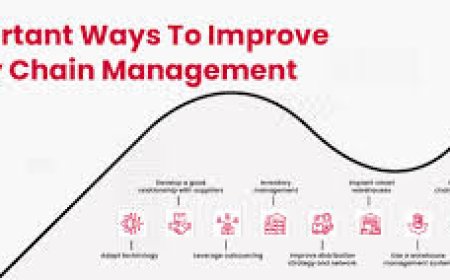How Is Higher Education in the UK Embracing AI for Dissertation Support?
AI is being incorporated into many facets of UK AI dissertation and higher education, from academic support and student involvement to administrative tasks. Colleges are seeing the value of AI in streamlining scholastic strategies and giving individualized offer assistance as understudy desires gotten to be more complicated, particularly amid the thesis phase.

Artificial intelligence (AI) has evolved from a science fiction idea to a useful tool in higher education in recent years. The use of AI technology in academia has grown significantly in the UK, which is home to some of the most prominent universities in the world as well as research-led programs. AI is changing how students organize british dissertation help, conduct research, compose, and polish their academic work, especially in the area of dissertation assistance. In order to improve student performance and the educational process as a whole, UK colleges are aggressively incorporating AI into everything from sophisticated plagiarism detection to intelligent writing helpers and research tools.
This article looks at how UK higher education institutions are using AI to help in the creation and writing of dissertations. It investigates the many uses of AI in scholarly research, looks at the moral dilemmas raised, and assesses the wider ramifications of dissertation help for teachers, students, and the educational system at large.
AI's Expanding Use in Higher Education
AI is being incorporated into many facets of UK AI dissertation and higher education, from academic support and student involvement to administrative tasks. Colleges are seeing the value of AI in streamlining scholastic strategies and giving individualized offer assistance as understudy desires gotten to be more complicated, particularly amid the thesis phase.
AI makes a difference organization to give more viable and adaptable administrations utilizing apparatuses like information analytics, machine learning, and characteristic dialect preparing (NLP). These arrangements streamline dreary exercises, give get to scholarly assets, and empower real-time input. The points of interest are particularly recognizable when it comes to higher education trends.
AI Resources to Help with Dissertation Research
1. Research Assistants Driven by AI
Students are being encouraged by UK colleges to use these platforms in addition to their own research efforts. Students can now receive AI-driven recommendations depending on their topic of interest thanks to the integration of AI-based research tools into online portals by certain libraries.
2. Intelligent Writing Tools
AI-powered writing tools like Grammarly, QuillBot, and ChatGPT are becoming increasingly prevalent in academic writing. These phases help understudies by improving the overall coherence, tone, organization, and language use of their writing.
More sophisticated systems even recommend enhancements to content clarity and reasoning.
Despite their past reluctance, many colleges are now accepting these tools as valid aidsas long as they are utilized responsibly. Workshops on the proper use of AI in dissertation drafting and editing are starting to be offered by academic writing help centers.
3. Originality and Plagiarism Detection Tools
AI algorithms have been integrated into Turnitin, a popular tool in UK institutions, to identify both direct plagiarism and more complex types of content manipulation. To guarantee the integrity of academic work, these tools examine writing style, structure, and source usage.
Universities are improving their originality policies and teaching students how to uphold academic integrity in light of the proliferation of AI-generated content. To determine whether content has been created or heavily affected by AI, new AI technologies are also being developed.
4. Tools for Data Analysis and Visualization
AI-based tools like IBM Watson, Tableau, and Python libraries enable students to analyze massive datasets with little programming experience for dissertations that call for quantitative or mixed-method research. These tools are able to predict trends, create visualizations, and spot patterns.
Effective use of these tools is being taught in training modules at UK universities. Data-intensive dissertations are now easier to obtain thanks to research methodologies courses that frequently involve practical sessions with AI-powered analytics systems.
Institutional Measures in the United Kingdom
In the UK, a number of universities are setting the standard for AI deployment. For example, the University of Edinburgh has set up a special center for AI instruction and research. In a similar vein, University College London (UCL) offers students access to AI-powered academic support resources by incorporating AI throughout its digital learning efforts.
AI mentorship programs have also been introduced by several colleges, matching students with virtual tutors who offer feedback on dissertation progress, recommend books, and keep track of due dates. For postgraduate students balancing research with other obligations, these virtual aides are very helpful.
Institutional Policies and Ethical Issues
The increasing integration of AI in dissertation assistance has raised ethical questions. Universities are being prompted to create explicit policies on the permissible use of AI due to concerns about authorship, academic integrity, and data privacy.
Guidelines on the use of AI have been released by the Quality Assurance Agency for Higher Education (QAA), which advocates for openness and responsible application. Nowadays, a lot of colleges demand that students reveal any AI technologies they utilized while working on their dissertations. Some schools have implemented AI literacy modules to educate both professors and students, and academic integrity regulations are being amended to reflect these new realities.
Automation and Critical Thinking in Balance
Finding a balance between automation and the development of critical thinking abilities is one of the main topics of discussion regarding AI in higher education. Although AI can be very helpful, there is worry that relying too much on it could impede the growth of analytical and autonomous research skills.
Thus, rather than replacing human intellect, UK educators are concentrating on using AI in a way that enhances it. For instance, students are supposed to critically assess and improve a research plan that they have created using AI. In a similar vein, although AI may identify grammatical errors, students are ultimately in charge of creating strong arguments.
In conclusion
The utilize of AI in UK higher instruction has on a very basic level changed how understudies approach inquire about and scholarly composing, especially when it comes to paper offer assistance. By mechanizing dull errands, advertising personalized coaching, and progressing openness, counterfeit insights (AI) apparatuses are making a difference understudies explore the troublesome paper prepare more effectively and certainly.
But enormous power also comes with immense responsibility. Universities that adopt these technologies must also consider the moral ramifications and work to preserve the fine balance between human intelligence and technological assistance. When applied carefully, AI in dissertation assistance has the potential to improve academic achievement and change the face of higher education for future generations.




























